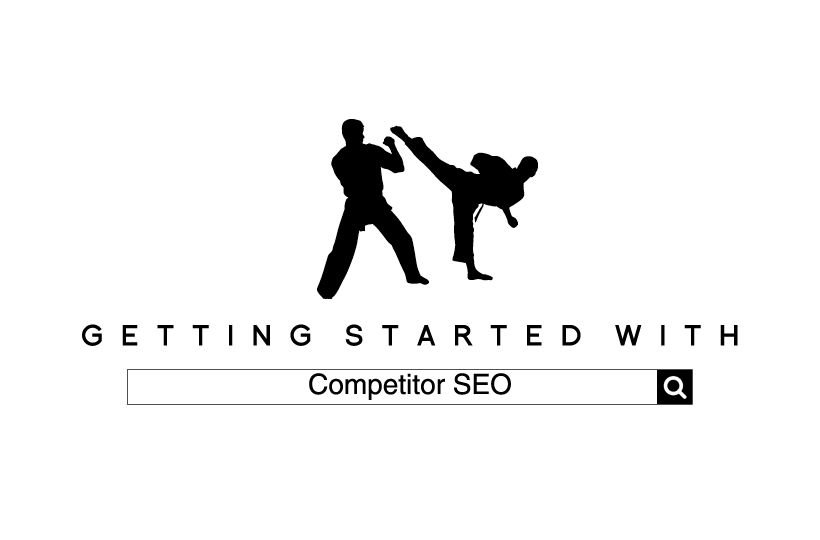Optimizing web pages for a competitor name is an incredibly effective SEO strategy that is completely underutilized by many companies and SEO experts. Yet, it’s relatively simple to start ranking for a competitor’s name on search.
For instance, in case you didn’t already know, Tipping Point is a full service marketing and advertising agency based out of Rochester, MI (If you didn’t know that, then you do now. Tisk, tisk.) We have several competing advertising agencies in the Rochester area including Team Detroit. To show up in Google search results for ‘Team Detroit’ we’d simply create a page on our website that is optimized for that keyword. It’s obviously very beneficial for Tipping Point to show up in a Google search for ‘Team Detroit’. Team Detroit is a great firm with an awesome team, but many Detroit clients could be better served in terms of both results and value if they opted to advertise with Tipping Point instead of Team Detroit. Furthermore, from an SEO perspective, it’s much easier to rank for ‘Team Detroit’ than it is to rank for generic industry phrases like ‘Advertising Agency’ or ‘Marketing Firm’. So why not put Tipping Point in front of prospective clients who are searching for Team Detroit?
Of course, it’s quite obvious why there may be some reserves about using this technique. There’s the moral question of whether utilizing this trick is right or wrong, and then there’s the legal considerations that should be taken into account as well. At first glance, competitor SEO may seem like a “black hat” SEO tactic, but it really isn’t. Competitor SEO is a completely legitimate, highly effective marketing technique provided it’s executed correctly (Emphasis on executed correctly.)
Is Optimizing A Site For Competitors’ Names Wrong?
In short, absolutely not! When done correctly, it’s entirely legitimate to put your competitor’s name in a title tag and construct a website page optimized for that name. There are two good reasons why this is not unethical.
First and foremost, you aren’t using this tactic to unethically displace your competitor from the search results or unseat them from their #1 rank position. No matter what, your competitor will always rank #1 for their name. In fact, unless we added thousands of pages all optimized for Team Detroit, there’s no way Tipping Point could ever outrank Team Detroit for ‘Team Detroit.’
Second, if your page contains useful information for the search engine user, then there is no harm done. If your page serves as nothing, but click bait then it’s blatant web spam. If you are a legitimate, viable alternative to your competitor and you objectively educate your site visitor, then your competitor page passes the SEO ethics test.
Mistakes To Avoid
Remember, you don’t want to spam the internet or Google will penalize you. That being said, you should build your competitor page for users and not for search engines. This is a basic principle outlined in Google’s Webmaster Guidelines. Google’s guidelines also advise that:
- Content should be written in a way that doesn’t deceive users.
- Questionable tricks used to improve search engine ranking should be avoided. A good rule of thumb is to only take actions that you’d feel comfortable explaining to a Google employee. Another important question to consider is, “Is this helpful for my end users?” You’re ultimately creating content for searchers. If it’s not helpful to them, then your content will do more harm than good.
For a Tipping Point Vs. Team Detroit page, what sort of content would cross the line in regards to these quality guidelines?
One such breach of the guidelines would be to create a title tag along the lines of, “Team Detroit Advertising Case Studies” Say we made that the title and then wrote a meta description along the lines of “Team Detroit represents some of the world’s largest brands. Read more about our Team Detroit case studies.” From there we mentioned Team Detroit in the body content of the page itself, but we primarily talked about how great of an ad agency Tipping Point was.
Assuming we did all of these things, we’d be breaching Google’s guidelines. Our title tags and meta description would have us optimized for ‘Team Detroit,’ however, we’d be deceiving searchers into clicking something completely unrelated to what they thought they were clicking into. We’d have a very hard time defending that page to an employee of Google. Long story short, don’t cross the line and engage in deceptive or manipulative behavior. Doing so could lead to complete removal of your website from search engines if you aren’t careful.
In order to avoid being deceptive, don’t:
- Just use your competitor’s name alone in your title tag. Instead, use a title tag like, “Comparing [your company’s name] to [competitor’s name]. Which is better?” This title more accurately alludes to what the page is about and it’s still optimized for search.
- Lure searchers into an ambush in which you trash your competitor without also objectively highlighting some of their strengths. Moreover, for the purpose of objectivity, you should also include some of your company’s weaknesses. If your competitive analysis is clearly biased then you’re not doing anyone any favors.
Who Should Engage In Competitive SEO?
Any company with a website could benefit from this SEO technique, but it’s most effective for small companies trying to compete with larger companies within their industry (David Vs. Goliath scenario.) Of course, it’s to your benefit that not many companies are utilizing competitor SEO. If every website produced comparative web pages Google would need to adjust their algorithm to eliminate all of the comparison pages from page 1 of the search results. If you can present evidence that you are better than your competition in any way, then you should go ahead and create a competitor comparison page.
Why Isn’t This Marketing Tactic More Common?
There are three main reasons why this marketing tactic isn’t more commonly used.
First, when you delve into company sites, most companies sadly receive a D or an F grade in their SEO and content marketing efforts. Many companies barely have the basics down let alone the ability to perform more advanced SEO tactics like this one. Before you rush to build pages on your site optimized for your competitors, hire a competent digital marketing firm to audit your site infrastructure, content strategy, and on-page SEO. If you don’t rank well yet for what you sell, it’s more important for you to focus on that first before trying to rank for your competitors.
Second, there’s a supposed golden rule in marketing that you never want to mention your competitors names. The idea is that by talking about your competitors, you’re making potential customers aware of their existence. News flash! In today’s modern day and age, consumers already know about the existence of your competitors just in performing a quick Google search for the products or services you provide. It’s your job to inform them why they should choose you over your competitors. In fact, a competitor page comes in handy for a reverse situation in which your potential customers know about your competitor, but don’t know about you.
Finally, the last reason why marketers often shy away from this tactic is because there’s a belief that there’s a risk Google may penalize you for using it. Like many SEO tactics, there’s a .00000000001% chance you may be penalized for conducting competitor SEO. However, you will only be penalized if you are using this technique incorrectly. Still, for many marketers a .00000000001% chance of penalization is enough to avoid competitor SEO.
Is it legal to optimize a page for a competitors name?
Is it against the law to try and rank for a competitors brand name? This is ultimately a question for your attorney. We may not be attorneys but there are two possible issues at play, trademark infringement and competitor disparagment.
As long as you have text on your page that says something along the lines of, “All trademarks are properties of their respective owners.” you will not be held guilty of a trademark violation. In addition, nothing in your copy should give the impression that you own your competitor’s trademark.
As for falsely disparaging your competitor, you need to be extremely careful. The Lanham Trademark Act extends claims for false advertising to misrepresentations about competitor products. Make sure that every sentence on your web page is either explicitly true or not explicitly false.
Regardless of the above, lawyers being lawyers, you may still receive a cease and desist letter in the mail. At that point, you can either take the page down or lawyer up and fight the good fight.
Alternative Approaches
If you don’t feel comfortable performing competitor SEO, there are still a couple of alternative approaches you can take.
First, you could always put this content on a third party site. There are more than likely several blogs within your industry that will allow you to guest blog and put up an objective competitor review. You could also create a Super Web 2.0 property and put your comparison up on that property. The downside to using a third party site is that users won’t be taken directly to your site, but you could include links in the copy that direct users to your site.
Second, instead of taking the SEO route, you could always take the PPC route and buy your competitors’ names as keywords in AdWords.
Getting Started With Competitor SEO
Thinking about trying to rank for your competitors’ names? Like all marketing initiatives it’s best practice to start with a pilot. Pick one or two competitors and build out pages that compare you to the competition. As you’re writing, write with a, “What would Matt Cutts do?” approach. In case you weren’t already aware, Matt runs the anti-spam team for Google. If Matt were sitting beside you as you’re writing, would he give your content his blessing? If not, go back and reread the Google Webmaster Guidelines to rework your content. The bottom line is that the content you create has to be useful, good, and non-manipulative. Once your pages are live, success will be achieved when you Google search your competitor’s name and find your page ranking in a relatively high position.
Want Some Help?
If you don’t conduct competitor SEO correctly, your website could be harshly penalized by Google. If you don’t feel comfortable performing your own competitor SEO or you’d like a higher search ranking across all fronts, you’ve landed on the right agency. Tipping Point is a full service advertising and digital marketing firm with several talented SEO professionals. We’ll help you increase your web traffic and web conversions dramatically. Want a free SEO audit? Contact us for your free web consultation or to learn more about our search services.







